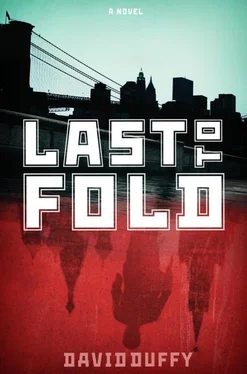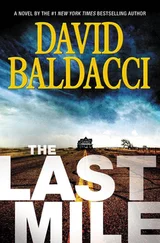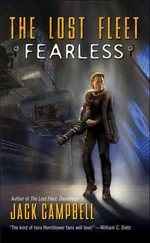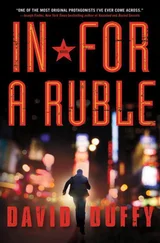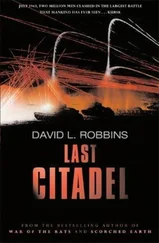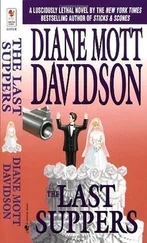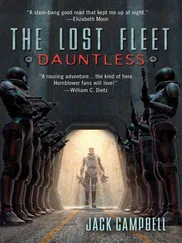“Uh-oh.”
“Right. They were all supposed to go to their dacha that night, but he had an exam coming up and decided to study late at school. They stayed home—and perished in the bombing.”
“He blamed himself, of course.”
“Of course. He started hanging out with his old friends and caught the attention of Barsukov. Chmil was a friend of his mother. He spent years trying to convince Ratko that the bombings that killed his parents were a Cheka operation. Three months ago, something happened, and Rislyakov told him he believed him—and he wanted to get even. He offered to open up the Badger empire. Chmil was murdered before he could do anything about it.”
“Cause and effect?”
“I’m afraid so. We have a leak. That’s one reason no one knows I’m here.”
Not surprising. But that was a hard admission for him. I went around the counter behind him and moved some stuff in the sink, giving him time.
A couple of minutes passed before Petrovin said, “I think Ratko stole that file from Polina’s computer. It proved what Chmil had been telling him about the Cheka and the apartment bombings. After Chmil died, I tried to build a relationship with Rislyakov. Slow going—he was cagey, suspicious, as you’d expect. I didn’t push too hard. We were making progress; I saw him when he was in Moscow last month. He told me to come to New York, he had something to show me. I recognized Iakov Barsukov on the plane. I followed him to Greene Street. I was supposed to meet Ratko there the next day.”
Lots of reasons not to like where this was going. I needed time, alone, to work through that. “If Ratko was going to be your mole in the Badger den, why did he go into hiding? Lachko hadn’t seen him in months—that had him worried, suspicious.”
“I don’t know. We were concerned about that, too, of course. We asked him. He said he needed to do things his way. We didn’t have a lot of choice but to go along.”
“I think he was using you, just as you were trying to use him. Ratko had expensive tastes, in addition to the gambling. He was blackmailing Polina, remember? I think he was going to keep the laundry running. He was going to operate it himself and use the Rosnobank file to keep the Barsukovs at bay. Iakov didn’t follow Ratko to Greene Street. He had an appointment. Eva told me Ratko was expecting him. He wanted Iakov alone—and out of Moscow—when he told him what he had and how he planned to use it.”
Petrovin shook his head. “Ratko wanted revenge. I got to know him well enough to see that.”
“Don’t take this the wrong way. Ratko spent the last several years being tutored by Chekists. He was smart. He would have learned some things. Maybe you saw what he wanted you to see. And maybe, like Kosokov, he wasn’t convinced the CPS could close the deal—especially in today’s Russia. On the other hand, from his point of view, with the laundry, he’d keep his income stream and he’d hit the Barsukovs—Lachko in particular—where it hurts most, in the wallet.”
Petrovin started to object but stopped. He sat for a moment, then did another circumnavigation of the apartment. He didn’t like my theory, for lots of reasons, but he could see it fit the facts better than his own.
“Tell me something,” I said when he returned to the counter. “Suppose you had Kosokov’s bank records. Suppose you could tie the bombings to the FSB. It’s explosive information, to be sure, but realistically, a decade later, in today’s Russia, what do you expect to accomplish?”
“You gauging my ambition—or my naivete?”
“Only asking if you’re trying to change the world.”
He smiled once again. “There was a time, not too long ago, I would have said yes. Now… I’m just trying hard to hold on to truth as a concept. Not something we, as a people, are familiar with, except perhaps in our humor. It may take us somewhere, it may get pushed into a ditch, but if we don’t at least put it on the road… You’re probably right about Rislyakov. Still, we had to try.”
“You might still get what you want. That file’s out there somewhere.”
“I’d like to talk to Polina Barsukova.”
“Her name is Mulholland now. Felicity Mulholland. Married to another banker, Rory Mulholland. Nine nine eight Fifth Avenue. Be careful. She doesn’t like talking about the past. Even if there’s no history.”
He gave me a funny look.
I said, “In your investigation of Kosokov and Gorbenko—their bodies, I mean—did you come across anything related to someone named Lena?”
“Why do you ask?”
“Eva keeps throwing this line at her mother—‘You should have left me with Lena.’”
“Lena… Yelena… there’s something in the file. I’ve got it all on this.” He tapped the laptop keyboard. “Here we go. A doll—in the shelter. Under the stairs, female, plastic, forty-five centimeters long, blond hair, remnants of a peasant costume. Also a plastic doll’s suitcase, nine by six by three, with three dresses inside, mostly intact. Name handwritten on the inside of each one—Yelena.”
“Huh. If the doll was in that shelter, odds are she was, too. Maybe with two corpses. Can you get the doll sent here?”
“I don’t know. I suppose so. It’s a risk—no one knows I’m here, remember?”
“Have it sent to Victoria, or to me. That’ll give you some cover.”
“You believe it’s that important?”
“She’s a screwed-up kid. Mulholland told me she suffered some kind of childhood trauma. He doesn’t know what. She was at the dacha with Kosokov and Gorbenko. She might have seen what happened. I know she’s terrified of something. The doll could be the key—if I can find her, that is.”
He nodded. “I’ll call tonight.”
The buzzer sounded, and I shuffled over to the intercom. Vodka was definitely having a medicinal effect on movement. “Yes?”
“Your guardian angel. Who else were you expecting?”
“I’ve been advised to screen my guests.” I pushed the door release button and turned to find Petrovin next to me, putting his laptop back in the messenger bag.
“I’ll be going,” he said, taking my hand. “Three’s company, as they say. We’ll be in touch.” Haste in his voice, bordering on urgency. I had the feeling he didn’t want Victoria to know he was here, but when she stepped out of the elevator, he bowed in his formal Russian way and spoke a few words in her ear. She nodded in response before coming down the hall, smiling, briefcase in one hand, shopping bag in the other. She was wearing a sleeveless blue blouse over a knee-length black skirt. All the curves in place. I wasn’t ready for a guardian, but the angel set my heart racing.
She gave me a kiss on the cheek and pushed past me to the kitchen. “I gotta warn you, I’m not much of a cook, but I figured in your condition, you’ll take what you get.”
“I’m cooking, remember? What’s in the bag?”
“Chicken. I’m going to call Giancarlo. He’ll tell me what to do.”
“I’ll take care of it.”
“You just go lie down. Dinner in an hour, I hope. You get any wine?”
“Still vodka and beer, sorry.”
“That’s got to change if I’m gonna keep comin’ around. Where’s the vodka?”
“On the counter. I’ll roast the chicken. You like lemon or onions?”
She turned, the vodka bottle in midair. “This about the chicken or control?”
“Probably both. It’s my kitchen.”
“In that case, you’re on your own. I’ll be right back. You got a wine shop in the neighborhood?”
“Liquor store, corner of Fulton, across from the Seaport.”
She was gone before I could say more. I melted some butter, chopped some garlic, parsley, and rosemary, grated some zest, squeezed some juice, mixed it all together with salt and pepper. I splayed the chicken, painted it all over with the butter-herb mixture, and put it in the oven, reflecting on the fact that none of this felt like it had taken any effort or caused any pain—but that could’ve been the vodka. I had just poured a small glass in celebration when the buzzer sounded Victoria’s return. She came down the hall carrying a bottle of something red, frowning. “Y’all need a new wine shop or a new neighborhood. Hope this stands up to your chicken. Corkscrew?”
Читать дальше
